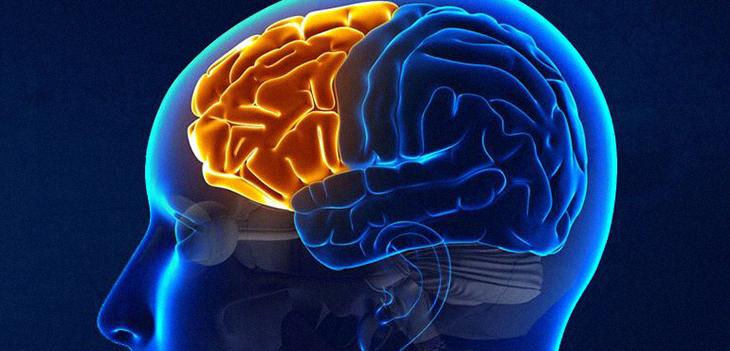
Have you experienced that moment gong out to dinner when you see a familiar face that calls out to you? This person clearly looks like they know you, and you know them too – in fact, you think you have known them for yers… But their name has just gone missing from your mind and all you can say is…. “Hello… there!”
Before you go into a panic and start wondering whether you have dementia, don’t worry because changes in memory and cognition is a normal part of the aging process, especially if it is having momentary lapses in attention when you are distracted or trouble finding the right words.
“Many of our cognitive skills, like multitasking and processing speed, peak around age 30 and then tend to decline very subtly with age,” says Joel Kramer, Psy.D., director of the University of California San Francisco Memory and Aging Neuropsychology program.
We’re here to tell you that they don’t have to! If you start making smart lifestyle choices, you will be able to retrain your brain to stay sharp and focused. Here are some research-backed tips by experts to keep your brain young, quick and healthy:
1. Give yourself time to recall before using Google
Ah, the power of internet. When you’ve forgotten that movie title that’s on the tip of your tongue, it’s so easy to just google it! If you do this often enough though, you’ll have a modern-day condition called digital amnesia. What is this? When you forget random information because you are so reliant on your computer or phone to remember it for you. It’s the sole reason of why we need to check our contacts list just to call our children or the office.
Sara Mednick, Ph.D., associate professor of cognitive science at the University of California, Irvine says that “The brain is a use-it-or-lose-it machine.” When the brain learns new things and recalls them at a later date, we are activating the hippocampus and prefrontal cortex which is intimately related with memory. But when we don’t give our brains a chance to exercise these different areas because we rely heavily on external resources, like the internet, those regions will eventually weaken.
The next time you’re struggling to remember that movie, challenge yourself to remember because looking it up.
“Work through it and trust that your brain knows the answer—you just need to find it in there,” Mednick says.
Another perfect example is trying to familiarize yourself to a new address without always resorting to Google Maps.
“It’s all about not living in automatic mode. The more you think things through or try novel approaches, the more you engage your brain to keep it healthier longer,” Mednick added.

2. Take that afternoon nap
Quality sleep is an absolute must when it comes to thinking fast. As we begin to rest for the night and reach REM sleep in the wee hours of the morning, our memories transform all the things we learned the day before into actual working knowledge. There’s nothing better than getting that well-deserved, restful sleep – except a timed nap.
“When we nap in the middle of the day, our time in each stage is more efficient. In a 90-minute nap, you cycle through both slow-wave and REM sleep, but you do it in the same proportion as it occurs across a whole night of sleep,” says Mednick. Because of this, “a 90-minute nap can rival what you’d get overnight in terms of memory consolidation, creativity, and productivity.”
Is 90 minutes too long for your packed schedule? Try dozing off for 30 minutes and lock in some information.
3. Exercise everyday
Anything that gets you moving and your blood pumping will give you a brain boost.
“Blood is filled with oxygen and nutrients that feed our brains,” says Gary W. Small, M.D., director of the UCLA Longevity Center and the author of 2 Weeks to a Younger Brain. Exercise also produces a protein that “acts like fertilizer for the brain, stimulating neurons to sprout branches so they can communicate more effectively,” adds Dr. Small.
Researchers in the University of Illinois had 120 adults between the ages of 55 to 80 spend 40 minutes, thrice a week either brisk walking or stretching and toning. They discovered that after one year, the hippocampus which is the memory center of the walkers’ brains were 2% bigger than those of the stretching and toning group. This percentage may sound minute, but it’s “enough to essentially reverse the brain shrinkage that naturally occurs with aging in the same period of time,” Dr. Small said.
Even just one workout can already give you an immediate cognitive boost. In 2019, a small study found that people who did stationary cycling for 30 minutes had a better recall ability than those who didn’t.

4. Don’t over multitask
Although multitasking makes us feel more productive, the fact is that it actually does not. Dr. Small says that “the brain is not designed to focus on several tasks at once.” This results to our brains feeling more stressed when we multitask “and we make more errors, which has the ultimate effect of making us less efficient.” That small interruption you take just to check if you have any new messages on your phone can triple your chances of making a mistake when doing a task.
The stress multitasking gives us also triggers the release of hormones that interfere with short-term memory. A perfect example to this is when the phone rings while you’re already talking to someone else and you pick it up, chances are, when you get back to your original conversation – you had already forgotten what you were saying.
Instead of trying to get through your entire to-do list all at once, work better and handle your tasks one by one. First and foremost, do not work while your phone is in arms length to distract you, even if it’s on airplane mode. Dr. Small suggests that by scheduling specific times as to when to answer your emails will get the need of constantly checking your inbox for a new email to come in.
If using your email or checking social media is too tempting, you can opt for a time management program like Time Doctor or RescueTime in order to temporarily block access to certain websites.
Some people recommend a technique called batching, wherein you group similar tasks together which you can tackle at the same time period. “Schedule a time each day for small administrative tasks—ideally a time when you’re low on energy, like mid-
afternoon,” says time-management expert Laura Vanderkam. This will allow you to focus on heavier work loads at other times of the day – and you will be more efficient overall.
5. Eat for your brain
Nutrition plays a big part with your day-to-day memory and focus by shaping your ability to retain more information. Here are our recommendations backed by Science:
Berries and beets
Berries are filled with anthocyanin and antioxidant compounds that can cross the blood-brain barrier. Everyday, free radicals are constantly forming in the brain, and if they are left to linger, “they act like rust, causing your neurons to age faster,” says Lisa Mosconi, Ph.D., associate director of the Alzheimer’s Prevention Clinic at Weill Cornell Medical College in New York City. Berries grab these free radicals and act “like police officers trapping the bad guys,” says Mosconi.
Beets have a lot of nitrate, which becomes nitric oxide in the blood and enhances blood flow. The more blood that goes to your brain, the sharper you will be.

Turmeric
This spice is an anti-inflammatory substance. In a previous study, people without dementia took 90 mg of Turmeric twice a day and showed better memory and attention.
“Curcumin might be one reason why people who eat a lot of Indian food or spicy curries tend to perform better on cognitive tests than those who don’t, and why rates of Alzheimer’s are lower in India than in the U.S.,” says Dr. Small, who led the study. Try to include Turmeric in your weekly diet or take a supplement.
Another thing to avoid when it comes to your daily diet is to: Try not to let yourself get hangry—that cranky feeling that comes over you when you’re ravenous (hungry + angry), sabotaging more than your mood. “If you go too long without eating, your blood sugar levels drop, and that impairs your focus and decision-making,” says Cleveland Clinic psychologist Susan Albers, Psy.D., author of Hanger Management.
When this happens, your brain will run on glucose or sugar and for that, you will need food intake. The time it takes for someone to get “hangry” differs for every person, so you should know your own limit and plan your meals ahead so you don’t get hungry throughout the day. Snacking something with protein and healthy fats like nuts or protein bars will be the perfect solution to get your through a busy day.



